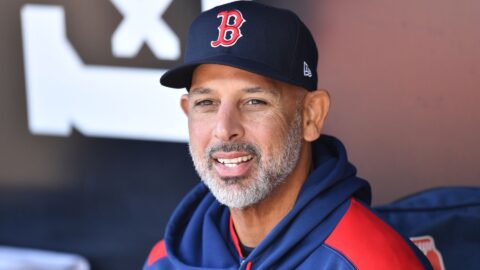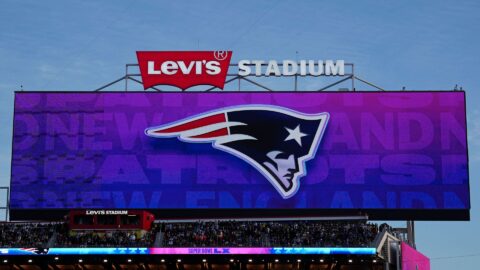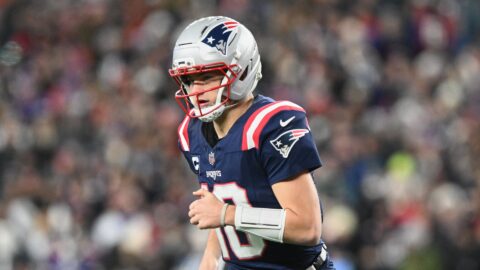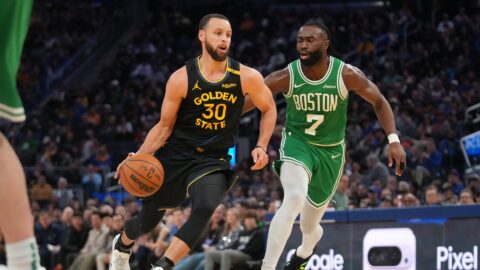Seemingly, everyone has an opinion on the designated hitter. You can appreciate the nearly 40-year-old rule, which allows for American League lineups to load up and attack with a more basic style. Those types may yawn at the low-scoring, double-switching affairs in the National League.
In the words of Red Sox manager Terry Francona, they go get popcorn when the pitcher hits.
Or, if you live in an NL city and enjoy the supposed uptick in strategy, you frown on the existence of lumbering, one-dimensional players like David Ortiz.
Every year around this time, when interleague play dominates the baseball world, the arguments for and against both leagues' styles come to the forefront. It creates a lot of noise, but obviously never much of a resolution.
However, nobody ever takes the middle road. Nobody ever sees that baseball, with its differing leagues, has something unique. There is rarely, if ever, a mind-set that the DH is interesting and has merit, but so too is the more authentic approach in the elder of the two circuits.
Maybe it isn't the boldest stance in the world. At the very least, it is not a forced one. All too often, those that opine upon the DH debate do so in such an aggressive way, as if their reputations as true baseball fans are at stake.
Just take a step back and consider the merits of both sides.
Ortiz is just one example of countless significant stars over the years who, for a variety of reasons, have utilized the DH to prolong their careers. Frank Thomas, Paul Molitor, Edgar Martinez, Hal McRae and Jim Thome are on that list. There are many other less notable figures that squeezed some service time out of the position. As Francona said himself this week, "It creates jobs for players, which I think is good."
And, to many, having to figure out whether to bring in your shutdown left-handed reliever to face Ortiz with a man on in the seventh is just as interesting as deciding when to pinch hit for the pitcher.
Additionally, all those that lament the presence of the designated hitter for its apparent dumbing affect on the game, neglect that it actually creates some intrigue in the front offices, if not in the dugouts. General managers in the AL have another position to play with, and decisions to make when filling it.
For instance, Boston has thrived with Ortiz in this spot for years. Several other teams have utilized a virtual rotation at the position, giving tired players a break from defense but keeping their bat in the lineup. Analyzing which route to go, and which players to use in which spot, is a subject of debate in a game that thrives off debate.
Look at the Yankees. If and when Jorge Posada's time with New York ends after this season, the club could keep the DH spot "open," giving Derek Jeter, Alex Rodriguez, Mark Teixeira and others a handful of starts in the position in the latter portions of their respective careers. Whichever guy needs to rest his aging bones, he can leave his glove in the locker.
Or, the Yanks could put a full-court press on Ortiz if he has an unlikely separation from the Red Sox. Wouldn't the Bronx Bombers love to throw the checkbook at and steal away one of the more beloved sluggers in Boston's history? You bet. While such a thought is nauseating to some in New England, it would make for one of the bigger stories of the offseason, and such an intriguing scenario could only exist because of the DH.
It can also come into play when an NL slugger who nears the end of his defensive career sees a shift to the AL as a way to prolong his playing days. In that way, one league helps another. Again, it creates jobs.
If the DH was never put in play in the first place, maybe nobody would even think twice about the balanced beauty that exists in the NL. Nine players on defense, nine on offense. Undeniably, National League baseball is baseball in its purest form.
That doesn't necessarily mean it is baseball in its best, or only, form. For that, one should decide on a case-by-case basis. It is fun to see Ortiz hit home runs into his mid-30s and be part of a run-happy offense spraying the ball all over Fenway Park. There's nothing unexciting about a strategic double shift and a pinch-hitting gamble late in a National League game.
The dichotomy becomes an issue during interleague play, when teams built around their DH must give it up for nine games, a challenge the Red Sox currently face. Perhaps the issue there lies with interleague play itself, a marginally popular venture among the players, at best.
Outside of that, the DH exists for reasons, many of them good. And the NL thrives for others, many of them good. Maybe, for once, we can enjoy both for what they are.



